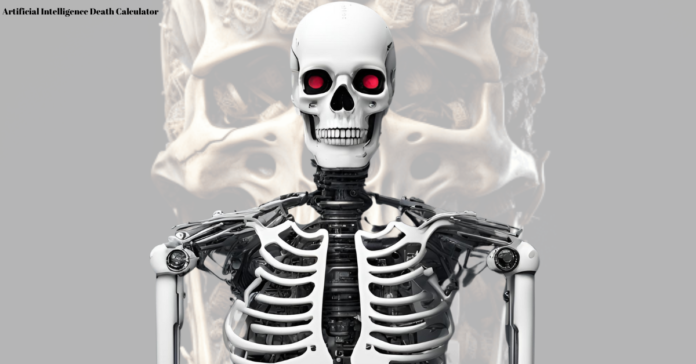You enter information about your lifestyle habits, health history, and income into an online calculator. It then spits out an estimate of how long you’re going to live — and it’s surprisingly accurate. Believe it or not, there’s no fiction here; such is the true nature of an AI death predictor. These virtual tools, running on complex machine learning programs, are changing the game when it comes to matters of health, lifespan, and even death itself.
Unveiling the Mechanics
AI death calculators analyze vast datasets of demographic and health information to identify patterns and make predictions. For example, Life2vec, a model trained on data from six million people in Denmark, considers factors like income, profession, and medical records to estimate lifespan. This model utilizes natural language processing (NLP) to interpret life data, converting it into numerical tokens that the algorithm can analyze for patterns.
Most people don’t think they need a calculator just to spit out a number. Predictive analytics tools can be used to determine potential health hazards or susceptibilities. This gives individuals and healthcare workers power because they can make decisions based on information science. For example, if your style of living was a pointer towards you getting heart disease, imagine how much healthier you’d be if this came to your understanding earlier enough.
The Promise of Personalized Healthcare
The potential benefits of AI death calculators extend beyond individual predictions. By providing personalized insights, these tools could revolutionize healthcare:
- Early Risk Identification: Try to imagine being able to recognize possible health problems even before they show any symptoms. For instance, AI can point out genetic liabilities or lifestyle issues that could result in future diseases, thus enabling early treatment and preventive care.
- Tailored Treatment Plans: Using AI-generated information, health organizations could devise custom solutions for patient care and treatment. This could result in better health results for the patients through focused treatment plans.
- Revolutionizing Population Health: On a larger scale, AI death calculators can inform public health interventions, disease prevention strategies, and even healthcare policy formulation. By analyzing trends and predicting future health needs, these tools could contribute to a healthier society overall.
Navigating Ethical Concerns

Although there is no doubt that AI death calculators have a lot of potential, creating and using them brings up many ethical questions.
- Data Privacy and Security: These calculators use sensitive data and, therefore, need strong privacy and security measures. Protecting personal health information is important for preventing its misuse and ensuring that data is handled ethically.
- Transparency and Informed Consent: People need to know exactly what is being done with their data and say “yes” before these devices can be used it. Trust is incredibly important so that these rely on ethical methods; consequently, transparency about the data source(s) and the math behind them is paramount.
- Avoiding Misinterpretation and Harm: It is vital to note that these calculators give an approximation and not an absolute. Depending too much on these forecasts may cause worry, unnecessary actions, or even discrimination. Prudent usage alongside explicit restriction communication is necessary.
Shaping the Future of Predictive Medicine
The AI death calculators are a huge advancement in predictive medicine that could change the way we think about healthcare. To make this happen, though, we need to think long and hard about what is right or wrong, ethically speaking, as well as being responsible when it comes to development.
As we go deeper into AI-powered healthcare, it’s important to have open conversations about the privacy of information, transparency in algorithms as well as responsible use of these powerful instruments. Technological progress alone won’t determine the horizon of predictive medicine rather, it will depend on how wisely we can collectively address the ethical dilemmas presented by this new field.


